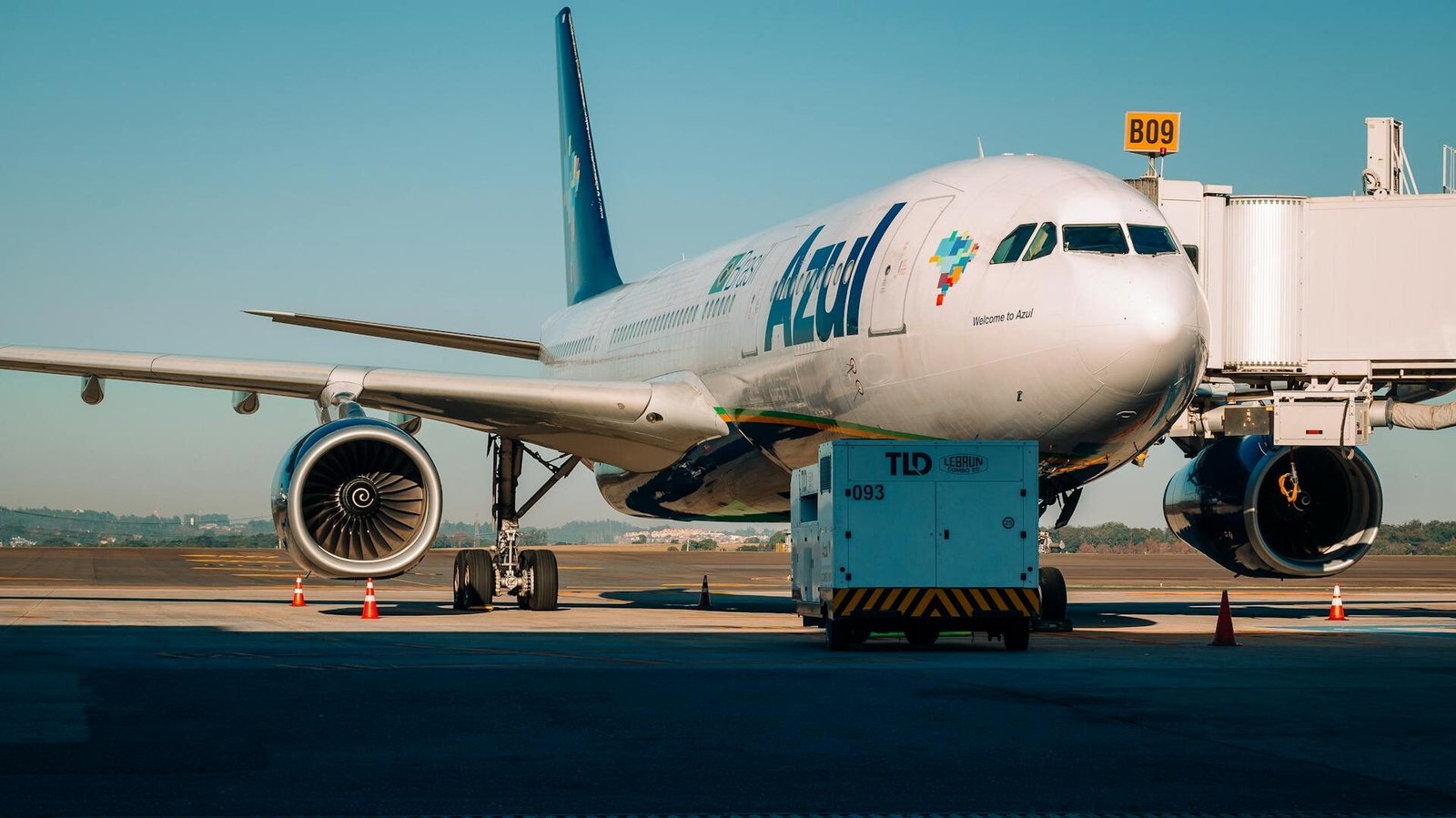
In the realm of international logistics, the service of sensitive goods air freight with DDPaid (Delivered Duty Paid ) is gradually becoming the focus of numerous merchants. Sensitive goods air freight with DDP, this door – to – door logistics model, offers great convenience to those in need of transporting sensitive goods. It encompasses the entire process from customs declaration in the exporting country, customs clearance in the importing country to the payment of customs duties.
Theoretically, customers don’t need to worry about complex logistics procedures. However, behind this seemingly hassle – free service of sensitive goods air freight with DDP, there are many market pain points, and many people are prone to falling into misunderstandings when choosing this service. Next, let’s delve into the common misunderstandings of sensitive goods air freight with DDP and obtain a guide to avoid pitfalls.
1. Introduction: The Core Value and Market Pain Points of Sensitive Goods Air Freight with DDP
Briefly Describe the Definition of the DDP Model
Sensitive goods air freight with DDP is essentially a comprehensive logistics solution. The logistics company undertakes the entire transportation task from the origin of the goods to the destination, including key links such as export customs declaration, import customs clearance, and payment of customs duties, building a door – to – door logistics channel for customers. Under the model of sensitive goods air freight with DDP, customers only need to deliver the goods to the logistics company, and the subsequent transportation and customs clearance matters will be handled by the logistics company, greatly simplifying the logistics process and reducing the difficulty for customers to handle complex procedures on their own.
Pain Points in Sensitive Goods Transportation
- Customs Clearance Risks: Due to their characteristics, sensitive goods face higher risks in the customs clearance process compared to ordinary goods. Customs policies vary significantly across different countries around the world, and the definitions and handling methods of sensitive goods also differ. This makes the customs clearance process of sensitive goods air freight with DDP full of uncertainties. Improper handling of any detail may lead to customs clearance obstacles, affecting the transportation of goods.
- Prohibited Items: Each country’s customs has a clear list of prohibited items. Items such as inflammable, explosive substances and drugs are absolutely prohibited from transportation. However, the category of sensitive goods is broader. Items like battery – containing products, liquids, and powders, although not completely prohibited from transportation, have stringent transportation conditions. In the process of sensitive goods air freight with DDP, these items may violate policy red – lines if not handled properly.
- Policy Compliance: With the continuous evolution of global trade policies, the relevant policies for the transportation of sensitive goods are also constantly being adjusted. Enterprises choosing the service of sensitive goods air freight with DDP must keep a close eye on policy trends to ensure that their transportation activities comply with the latest policy requirements. Otherwise, once violations occur, they will face serious consequences such as fines and seizure of goods, causing huge economic losses to the enterprises.
2. Misconception 1: “Sensitive Goods Air Freight with DDP = 100% Customs Clearance Guarantee”
Analyze the Liability Boundary of DDP
In the service system of sensitive goods air freight with DDP, the customs clearance agent is responsible for assisting with the customs clearance process, but this does not mean that 100% customs clearance can be ensured. Customs inspections are random. Even if complete and accurate documents are provided, the goods may still be randomly inspected. The customs clearance agent can only ensure that the declaration documents are compliant and the goods meet the transportation specifications, but they cannot fully control the results of customs inspections.
Case: The Real Reasons for High – Sensitivity Goods (such as Counterfeit Brands, Liquids) Being Seized
- Intellectual Property Risks: Counterfeit brand goods, due to their involvement in intellectual property infringement, are severely cracked down on by customs around the world in international transportation. Once detected by the customs, even if the service of sensitive goods air freight with DDP is chosen, the goods are likely to be seized, and the customs clearance agent is unable to guarantee the smooth customs clearance of the goods. For example, a merchant shipped a batch of counterfeit brand electronic products via sensitive goods air freight with DDP. After arriving at the port of destination, the entire batch of goods was seized because the brand right – holder reported to the customs. The merchant not only lost the goods but may also face legal liability.
- Air Transportation Restrictions on Liquids: Liquid goods are subject to strict restrictions in air transportation, with clear requirements in terms of capacity, packaging, etc. If the packaging does not meet the regulations or the declaration information is inaccurate, even if the service of sensitive goods air freight with DDP is adopted, the goods may be intercepted during the security check. There was once a merchant who transported liquid cosmetics. Due to not using special packaging as required, the goods were detected at the transit airport, resulting in the goods being detained and the delivery time being delayed.

3. Misconception 2: “The Lower the Quote for Sensitive Goods Air Freight with DDP, the More Cost – effective”
Hidden Costs of the Low – price Trap
- Surcharges: Some unethical logistics companies may deliberately conceal certain fees in the quote for sensitive goods air freight with DDP, such as document processing fees, remote area delivery fees, overweight and over – length surcharges, etc. When the goods are in the middle of the transportation process, the customer is informed that these additional fees need to be paid, making the final cost far exceed the initial quote and causing economic losses to the customer.
- Loopholes in Tariff Pre – payment: The service of sensitive goods air freight with DDP includes the pre – payment of customs duties. However, some logistics companies may adopt unreasonable methods when estimating the customs duties. If the actual customs duties are higher than the pre – paid amount, the customer may need to make up the difference. If the actual customs duties are lower, the logistics company usually does not refund the difference, thus profiting from it.
- Fuel Surcharges: The price of aviation fuel fluctuates frequently. Some low – price quotes may not fully consider the changes in fuel surcharges. When the fuel price rises, the logistics company may require the customer to pay this fee additionally, resulting in an increase in the customer’s transportation cost.
Compare the Differences between Transparent Quotes and All – inclusive Prices
A transparent quote will list in detail all the cost items for sensitive goods air freight with DDP, including transportation fees, customs clearance fees, the basis for calculating customs duties, and possible surcharges, allowing the customer to clearly understand the purpose and calculation method of each expense. While an all – inclusive price may seem simple and straightforward, it may hide many unclear cost items. By choosing a transparent quote, customers can better optimize their logistics costs, understand details such as terminal delivery fees, and avoid unnecessary expenses caused by hidden costs.
For example, the all – inclusive price offered by Logistics Company A seems attractive, but during the transportation process, it charges high surcharges for various reasons. Logistics Company B, on the other hand, adopts a transparent quote. Although the total price is slightly higher, all cost items are clear and transparent. Eventually, the customer finds that the actual expenditure with Logistics Company B is lower.
4. Misconception 3: “All Sensitive Goods Can Be Shipped via Sensitive Goods Air Freight with DDP”
Identify Prohibited Categories
Dangerous goods are absolutely prohibited from being transported in the service of sensitive goods air freight with DDP. This includes explosives, radioactive substances, highly toxic chemicals, etc., because they pose a serious threat to flight safety and public safety. In addition, items on the aviation embargo lists of various countries are also strictly prohibited from being transported through this service, such as certain protected animal and plant products, specific controlled drugs, etc.
Solutions for Special Sensitive Goods (e.g., Battery Products, Powders Require MSDS Certification)
- Battery Products: Batteries, as common sensitive goods, are not completely untransportable, but they need to meet a series of strict conditions. Generally, they need to provide an MSDS (Material Safety Data Sheet) certification, which details information such as the battery’s components, physical and chemical properties, hazard characteristics, and emergency response measures. At the same time, battery products need to use special packaging that meets the regulations, such as explosion – proof boxes and fire – proof materials, to ensure safety during transportation.
- Powders: Powder products also need to provide an MSDS certification to prove their safety to the customs. When making a declaration, product information must be accurately filled in, including components, uses, sources, etc., to ensure compliance with the regulations of the importing country. For example, powder products such as loose powder and talcum powder in cosmetics need to provide detailed component descriptions and MSDS certifications when being transported, and only then have the possibility of being air – shipped through the sensitive goods air freight with DDP channel.
5. Misconception 4: “No Documents Are Required for Sensitive Goods Air Freight with DDP”
List of Essential Documents
- Commercial Invoice: The commercial invoice records key information such as the value, quantity, and specifications of the goods and is an important basis for customs to levy taxes and conduct supervision. It should accurately reflect the true situation of the goods, including the description of the goods, unit price, total price, trade terms, etc.
- Packing List: The packing list details the packaging situation of the goods, including the item details, weight, and volume in each package. This helps the customs to inspect the goods and calculate the freight, ensuring the accuracy and rationality of the goods transportation.
- Special Permits: For some special sensitive goods, such as medical devices, specific chemicals, animal and plant products, etc., relevant special permits may be required. These permits are proof that the goods meet the access requirements of the importing country. Only after obtaining the corresponding permits can the goods legally enter the country.
Consequences of Missing Documents
- Customs Clearance Delays: When the customs inspects the goods, if necessary documents are missing, it will be unable to accurately understand the detailed information of the goods, resulting in a standstill in the customs clearance process. This not only delays the delivery time of the goods but may also cause additional economic losses to the customer, such as storage fees.
- Risk of Return Shipment: If the lack of documents is serious and the customs deems it as false declaration, the goods will face the risk of being returned. Once the goods are returned, not only will the transportation cost increase significantly, but it will also affect the customer’s business reputation and subsequent business development. For example, an enterprise air – shipped chemical products. Due to not providing the relevant special permit, the goods were detained at the port of destination for many days and finally returned, causing huge economic losses to the enterprise.

6. Misconception 5: “The Delivery Time of Sensitive Goods Air Freight with DDP is the Same as that of Ordinary Goods”
Time – related Variables in Sensitive Goods Transportation
- Customs Inspection Time: The probability of sensitive goods being randomly inspected by the customs is higher than that of ordinary goods. Once inspected, the time required for customs inspection may be relatively long, ranging from a few days to more than ten days or even longer. This additional inspection time will seriously affect the delivery time of sensitive goods air freight with DDP, resulting in the goods not being delivered on time.
- Transit Port Detention: During the transportation process, if sensitive goods do not meet the relevant regulations of the transit port, such as the packaging not meeting the safety standards or incomplete documentation, they may be detained at the transit port. The goods need to be repackaged and the documents need to be supplemented at the transit port, which will undoubtedly delay the transportation time and disrupt the entire transportation plan.
How to Estimate a Reasonable Delivery Time
- Air Freight Delivery Time Guarantee: Choosing a logistics company with a good air freight delivery time guarantee is very important for sensitive goods air freight with DDP. Customers can evaluate the delivery time guarantee ability of the logistics company by understanding its historical transportation data, cooperation relationship with airlines, and experience in handling sensitive goods transportation. Some high – quality logistics companies have established long – term and stable cooperative relationships with airlines, which can better coordinate transportation resources and ensure the timely transportation of goods.
- Logistics Tracking System: By using an advanced logistics tracking system, customers can monitor the transportation status of the goods in real – time. Through the tracking system, customers can timely understand whether the goods are delayed and communicate with the logistics company in a timely manner to jointly seek solutions when problems are found. For example, when it is found that the goods have stayed at the transit port for too long, the customer can obtain detailed information through the logistics tracking system and contact the logistics company in a timely manner to understand the reasons and urge it to handle the situation as soon as possible.
7. Pitfall – Avoidance Guide: 3 Steps to Select a Reliable Service Provider
Key Points for Qualification Verification
- IATA Certification: The International Air Transport Association (IATA) certification is an important symbol to measure the professional ability and reputation of a logistics company. Logistics companies that have obtained this certification have undergone strict audits in terms of air transportation operation norms, safety standards, service quality, etc., and have a higher level of professionalism and reliability, providing more guarantee for the service of sensitive goods air freight with DDP.
- Assessment of Customs Clearance Ability: Understanding the customs clearance ability of the logistics company in the destination country is the key to selecting a reliable service provider. The customs clearance ability of the logistics company can be evaluated by checking the size of its customs clearance team, professional qualifications, and past successful customs clearance cases. Especially for the customs clearance of sensitive goods, the logistics company needs to have rich experience and professional knowledge to deal with various complex situations.
Precautions for Contract Terms
- Liability for Compensation Clause: Before signing the contract, it is necessary to clearly define the liability for compensation and the method of compensation of the logistics company in case of loss or damage of the goods. The contract should clearly stipulate the compensation standard, whether it is compensation based on the actual value of the goods or according to other agreed – upon methods, to protect the legitimate rights and interests of the customer.
- Insurance Coverage: Carefully understand the insurance coverage provided by the logistics company to ensure that the insurance can cover various risks during the transportation of sensitive goods air freight with DDP, such as damage to the goods caused by customs inspections, natural disasters, transportation accidents, etc. Clearly define the claim conditions and procedures of the insurance so that compensation can be obtained smoothly when problems occur with the goods.
User Cases: Key Strategies for Successfully Transporting Counterfeit Brands/Cosmetics
Take the transportation of counterfeit brand products as an example. The key to success lies in choosing a logistics company with rich experience in handling intellectual property issues. Such a logistics company can obtain relevant authorizations through legal channels or adopt other compliant methods to reduce transportation risks and ensure the smooth transportation of goods. For the transportation of cosmetics, the logistics company needs to be familiar with the transportation requirements of sensitive ingredients such as liquids and powders and operate strictly in accordance with packaging and declaration regulations.
For example, when a merchant transported counterfeit brand clothing, the selected logistics company obtained a legal authorization through communication with the brand owner and successfully delivered the goods to the destination. Another merchant transported liquid cosmetics. The logistics company used special packaging strictly in accordance with the packaging standards and made accurate declarations, and the goods finally passed customs smoothly.
8. Conclusion: Balancing Cost, Efficiency, and Compliance
Emphasize the Value of Compliance Declaration
Compliance declaration is the cornerstone to ensure the smooth transportation of goods in sensitive goods air freight with DDP. It can not only avoid direct losses such as fines and seizure of goods caused by violations but also has far – reaching significance for the long – term logistics safety and credit accumulation of enterprises. Adhering to compliant transportation for a long time helps enterprises establish good cooperative relationships with customs and other regulatory authorities, enhances the enterprise’s reputation in the industry, and lays a solid foundation for the sustainable development of the enterprise.
Industry Trend Forecast
- Global Customs Digitalization: With the rapid development of science and technology, the digital transformation of global customs is accelerating. In the future, customs inspections will rely more on advanced digital technologies, putting forward higher requirements for the accuracy, timeliness, and integrity of declaration information. Enterprises choosing the service of sensitive goods air freight with DDP need to adapt to this trend, strengthen information construction, and ensure the quality of declaration data.
- Innovation in Sensitive Goods Logistics: In order to meet the growing demand for the transportation of sensitive goods, the logistics industry will continue to innovate. This includes the research and development of safer and more efficient packaging materials, the optimization of transportation processes to reduce risks, and the use of technologies such as big data and artificial intelligence to improve the intelligent level of logistics services, thereby improving the transportation efficiency and safety of sensitive goods air freight with DDP.





